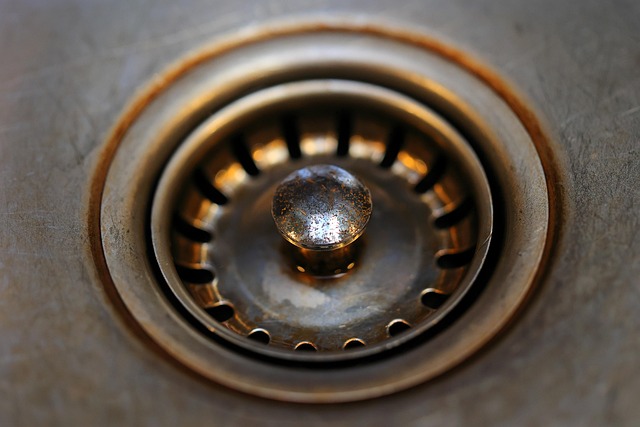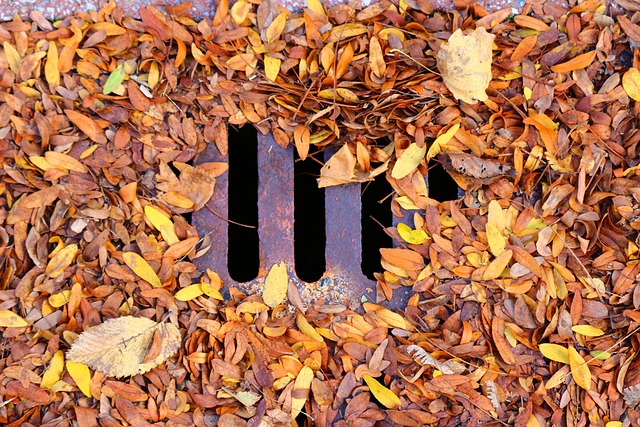Homeowners should watch for subtle Signs of a Clogged Drain like slow drainage, water pooling, unusual noises, and bad odors. Prompt action is vital to prevent severe clogs and plumbing disasters. Regular maintenance and using appropriate tools or professionals for complex issues can keep drains healthy and avoid costly repairs.
Are you a homeowner tired of dealing with stubborn drain clogs? This comprehensive guide is your go-to resource for maintaining healthy drains. Learn to recognize the telltale signs of a clogged drain, from unusual noises to slow drainage, and equip yourself with effective prevention strategies. Discover natural remedies and when it’s time to call in the professionals. Take control of your plumbing and bid farewell to frustrating clogs!
- Understanding Common Signs of a Clogged Drain
- Strategies for Preventing and Clearing Blockages
- When to Call in the Professionals for Drain Maintenance
Understanding Common Signs of a Clogged Drain

Many homeowners often overlook the subtle signs of a clogged drain until it becomes a pressing issue. Recognizing these indicators early on is crucial for maintaining a healthy plumbing system. One of the most obvious signs is a slow drainage, where water takes an unusually long time to flow down the sink or bathtub. This could be accompanied by water pooling at the basin’s edge, indicating a backup further down the pipe. Another common signal is an unusual noise, such as banging or gurgling sounds coming from the drain, which suggests air trying to pass through a partially blocked pipe.
Additionally, bad odors wafting from the drain are another red flag. These scents can range from putrid to pungent, and they often indicate the presence of decaying organic matter or bacteria that cannot pass through the clog. If you notice any of these signs, it’s essential to take action promptly to avoid more severe clogs and potential plumbing disasters.
Strategies for Preventing and Clearing Blockages

Recognizing the signs of a clogged drain is the first step in maintaining healthy drains. Some common indicators include slowed drainage, water that stands or pools in the basin, and an unpleasant odor emanating from the pipe. Regular maintenance is key to preventing clogs; use hot water regularly to flush out grease and food particles, and avoid pouring fatty foods, coffee grounds, or sanitary products down the drain.
For minor blockages, clearing the drain with a plunger or using a chemical drain cleaner can be effective. However, for more severe cases or recurring issues, it’s advisable to consult a professional plumber who can diagnose and address the root cause, whether it’s tree roots infiltrating pipes, structural damage, or built-up debris.
When to Call in the Professionals for Drain Maintenance

If you’ve tried the above methods and still can’t dislodge the clog, it’s time to consider professional drain maintenance. A blocked drain that persists could be a sign of a more serious issue, such as damaged pipes or tree roots infiltrating your plumbing.
Professional plumbers are equipped with specialized tools and expertise to diagnose complex problems. They can locate the exact cause of the blockage using advanced techniques, whether it’s a broken pipe, a severe buildup of grease and hair, or an invasive root system. Promptly addressing these issues is crucial to prevent further damage and costly repairs. Look out for persistent clogs, slow-draining sinks, or unusual smells coming from your drains as potential signs that it’s time to call in the professionals.
Maintaining healthy drains is essential for any homeowner. By understanding common signs of a clogged drain, employing preventive strategies, and knowing when to call professionals, you can keep your plumbing system running smoothly. Regular maintenance and quick action can save you from costly repairs and ensure a hassle-free living experience. Remember, addressing drain issues promptly is key!
